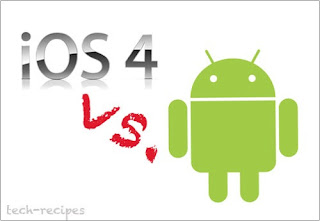The Apple iOS, which runs on its iPhone, iPod Touch, and iPad, has a flaw in how it reads PDF documents that makes it easier to hack. This flaw is exploited by JailbreakMe, a one-click site that makes it easy for anyone without any real tech skills to hack into their own iPhone.
The flaw lets JailbreakMe open up an Apple operating system, and enables the user to load non Apple-approved applications on to an Apple device. JailbreakMe brought the security risk to light, finally causing Apple to release security updates for iOS 4.0.2 for iPhone and iPod touch and iOS 3.2.2 for iPad this week. (By the way, doesn’t this sound a lot like the same security flaw that Adobe learned about in late July?)
But the threat to the iOS is not the operating system itself but in its third-party software, such as the Safari browser, QuickTime, Java, or apps from Adobe. Nonetheless, it’s Apple that bears the responsibility for monitoring security, since it’s made the choice to use the software and package it for users. This is a weird conundrum since Apple believes in the “walled garden” approach to applications. Shouldn’t it be patrolling the garden more?
Android has similar issues, such as an innocuous Jackeey wallpaper application that retrieved personal information from each phone that downloaded its application. Neither JailBreakMe nor Jackeey were hacking into anyone’s phone; however, their code could be used for evil rather than good, which worries most security experts.
So how does Apple’s security for its mobile operating system stack up against that of Google’s Android, the biggest competitor?
1. Walled Garden v. the Wild Jungle
The biggest problem with Apple’s security is its walled garden philosophy, which relies on the wisdom of Apple approving applications rather than by consensus or the individual user. While many Apple fans say this decreases iOS problems, others say that it actually contributes to them by closing a door on the application after it has gained entrance into the App Store. Apple’s gatekeeping system on its walled garden is also virtually unknown, and it may also prove to give a false sense of security.
The Android Market, on the other hand, resembles a swap meet. The applications are available without restriction, and are monitored and reviewed by users themselves, including analyzing code–something not offered by Apple. While some worry that the free-for-all will be a security risk, at least one security research firm, Lookout, says Android’s applications are less problematic than Apple’s.
2. Pig-in-the-Poke v. the Test-Drive
Another way that app security for the Linux-based Android platform is better is that each application must disclose to the user what part of the device it plans to use and how. Google also publicly talks about operating a “honeypot,” or a computer not hooked up to all parts of its system, which monitors Android applications for malicious programs. Such open discussion is not part of Apple’s corporate climate, users frequently don’t know what they are buying until damage is done–but if they’re lucky, they found out about their vulnerability through JailbreakMe.
3. Freedom v. Establishment
With Google’s new App Inventor, you don’t have to be a software engineer to create an application for the anything-goes Android platform. Not so at Apple. It takes an experienced software developer to create anything on the iOS, and it’s up to the corporate honchos at Apple to approve it. As for security in the “walled garden,” there are no guarantees.
While the iPhone has some important security features, like sophisticated memory protection and a required digitally signed code requirement, security analysts say Android’s protection is stronger because of its source openness and the way it isolates applications which causes less harm to users. While business owners should block or limit access to applications to company machines to protect their data, the Android platform may prove just a little safer.








